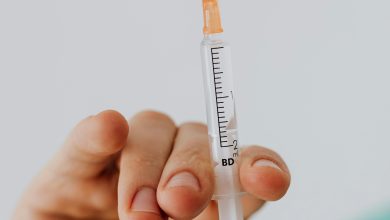List Of Medications That Stop Diarrhea

Diarrhea is a common health problem that affects people of all ages and can be caused by various factors such as viral or bacterial infections, food intolerances, medications, or chronic medical conditions. While diarrhea is often self-limiting and can resolve on its own within a few days, it can cause discomfort, dehydration, and electrolyte imbalances. Fortunately, there are several types of medication that can help stop diarrhea and promote faster recovery. In this article, we will discuss the most commonly used medications for diarrhea, how they work, and their potential side effects.
1. Antidiarrheal agents
Antidiarrheal agents are medications that work by slowing down the movement of stool through the intestines, reducing the frequency and volume of bowel movements. There are two main types of antidiarrheal agents: opioids and non-opioids.
a) Opioid antidiarrheal agents
Opioid antidiarrheal agents such as loperamide (Imodium) and diphenoxylate/atropine (Lomotil) are some of the most commonly used medications for diarrhea. These drugs work by binding to the mu-opioid receptors in the intestinal wall, which reduces peristalsis (the movement of food and waste through the gut) and increases the absorption of water and electrolytes from the stool. Loperamide is available over-the-counter, while diphenoxylate requires a prescription and contains atropine, a medication that helps to counteract some of the side effects of opioids such as constipation and sedation.
b) Non-opioid antidiarrheal agents
Non-opioid antidiarrheal agents such as bismuth subsalicylate (Pepto-Bismol) and attapulgite (Kaopectate) work by coating the intestinal wall and absorbing toxins and other substances that can cause diarrhea. Bismuth subsalicylate also has antimicrobial properties and can help to kill the bacteria that cause some types of diarrhea, such as traveler’s diarrhea. Attapulgite, on the other hand, is a clay-like substance that can help to bind toxins and fluids in the gut, reducing the frequency and intensity of diarrhea.
2. Antibiotics
Antibiotics are medications that are used to treat bacterial infections, which can cause diarrhea. Common antibiotics used to treat bacterial diarrhea include ciprofloxacin (Cipro), levofloxacin (Levaquin), azithromycin (Zithromax), and rifaximin (Xifaxan). These drugs work by killing or inhibiting the growth of bacteria that cause diarrhea, such as Salmonella, Shigella, and Campylobacter. However, antibiotics are not effective against viral or parasitic infections, which can also cause diarrhea.
3. Probiotics
Probiotics are living microorganisms that can help to restore the natural balance of gut bacteria and improve digestive function. Probiotics are available in supplement form or can be found in certain foods such as yogurt, kefir, and sauerkraut. Some strains of probiotics such as Lactobacillus acidophilus and Bifidobacterium bifidum have been shown to be effective in reducing the duration and severity of diarrhea caused by infections or antibiotic use. However, more research is needed to determine the optimal dose and duration of probiotic therapy for diarrhea.
4. Adsorbents
Adsorbents are substances that can bind to toxins and other substances in the gut, preventing them from being absorbed and eliminating them from the body. One example of an adsorbent medication is activated charcoal, which is available over-the-counter and can be used to treat acute diarrhea caused by toxins or medications. Activated charcoal works by adsorbing toxins and other harmful substances in the gut, preventing them from being absorbed into the bloodstream and eliminating them from the body through feces. However, activated charcoal should not be used for chronic diarrhea or for more than a few days, as it can interfere with the absorption of nutrients and other medications.
5. Anti-inflammatory drugs
Inflammatory bowel disease (IBD) is a chronic condition that can cause diarrhea, abdominal pain, and other symptoms. Anti-inflammatory drugs such as mesalamine (Asacol), sulfasalazine (Azulfidine), and budesonide (Entocort) can help to reduce inflammation in the gut and alleviate symptoms of IBD. However, these medications are not effective for all types of diarrhea and can have side effects such as nausea, headache, and liver damage.
6. Fluid and electrolyte replacement
Dehydration and electrolyte imbalances are common complications of diarrhea, especially in young children, older adults, and people with chronic medical conditions. Fluid and electrolyte replacement therapy can help to restore hydration and electrolyte balance, which can promote faster recovery and prevent complications such as hypovolemic shock. Oral rehydration solutions such as Pedialyte and Gatorade can be used to replace lost fluids and electrolytes, while intravenous fluids may be necessary for severe cases of diarrhea.
7. Laxatives
While laxatives are typically used to treat constipation, they can also be used to treat diarrhea caused by conditions such as irritable bowel syndrome (IBS). Laxatives work by increasing the frequency and volume of bowel movements, which can help to reduce symptoms of diarrhea and promote regular bowel function. However, laxatives should only be used under the guidance of a healthcare provider, as they can have side effects such as abdominal cramping and electrolyte imbalances.
Conclusion
Diarrhea is a common health problem that can be caused by various factors such as infections, food intolerances, medications, and chronic medical conditions. While diarrhea is often self-limiting and can resolve on its own within a few days, it can cause discomfort, dehydration, and electrolyte imbalances. Fortunately, there are several types of medication that can help stop diarrhea and promote faster recovery, including antidiarrheal agents, antibiotics, probiotics, adsorbents, anti-inflammatory drugs, fluid and electrolyte replacement, and laxatives. However, it is important to consult a healthcare provider before using any medication for diarrhea, as some medications can have side effects or may not be suitable for certain individuals. Additionally, it is important to maintain good hygiene practices such as handwashing and food safety to prevent the spread of infectious diarrhea.





